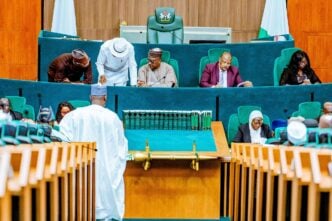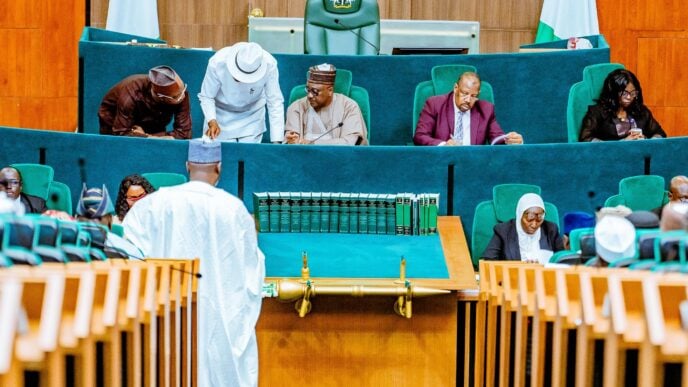Taiwo Oyedele, chairman of the presidential fiscal policy and tax reforms committee, says Nigeria’s high interest rate regime has proven costly for the economy, exacerbating debt obligations, and limiting the fiscal space.
Oyedele, who spoke during a webinar organised by Standard Chartered via Zoom on Tuesday, linked the situation to Nigeria’s battle against inflation.
The Debt Management Office (DMO) recently announced the commencement of subscriptions for the federal government of Nigeria (FGN) savings bonds for October.
The debt office offered a two-year bond due October 15, 2027, at an interest rate of 14.06 percent per annum, and a three-year bond due October 15, 2028, at 15.06 percent per annum.
Advertisement
Prior to the bond issuance, the monetary policy committee (MPC) of the Central Bank of Nigeria (CBN) had reduced the country’s monetary policy rate (MPR) from 27.5 percent to 27 percent — the first since 2020.
Speaking at the virtual event, Oyedele said the continued payment of high interest rates negatively affects the federal government’s dividend.
“We had to deal with high interest rate regime, because we’re trying to fight inflation, and that hasn’t been very positive for the fiscal space, because we’re then spending more in terms of the debt obligation, and even some of the cost that is (sic) carried by the central bank,” he said.
Advertisement
“Because when the central bank pays high interest on home bills and treasury bills, it essentially reduces the dividend that’s available for the central bank to pay the federal government.
“So, whichever way you look at it, it’s been really very expensive dealing with high interest rate regime to deal with both our FX situation as well as inflation. But the outlook is that both of those are moving in the right direction.”
Moving forward, the tax expert said he expects lower interest rates, more stability in the foreign exchange market, and improvements in Nigeria’s external reserves.
‘NEGATIVE NARRATIVES ON TAX REFORMS UNDERMINING PROGRESS’
Advertisement
The tax expert also said the negative narratives of naysayers on the ongoing tax reforms are undermining the government’s efforts and threatening Nigeria’s progress.
He said the government is committed to moving forward, even though a number of people disagree with and do not want it to succeed — warning that when the government fails, the country fails.
“They come up with narratives from time to time. They amplify whatever is not working, whatever is working, they play down on them, and this is having some impact in terms of the perception of the people about the reforms and the ability to be able to consolidate on those reforms,” the tax expert said.
“But I think there’s clarity from the very top that we are committed to these reforms.
Advertisement
“We’re not complacent. We know that the work is not done yet. It’s work in progress. So, we are continuing to work on those issues.”
On October 3, Oyedele said more than 90 percent of Nigeria’s informal sector operators do not have the capacity to pay taxes.
Advertisement










